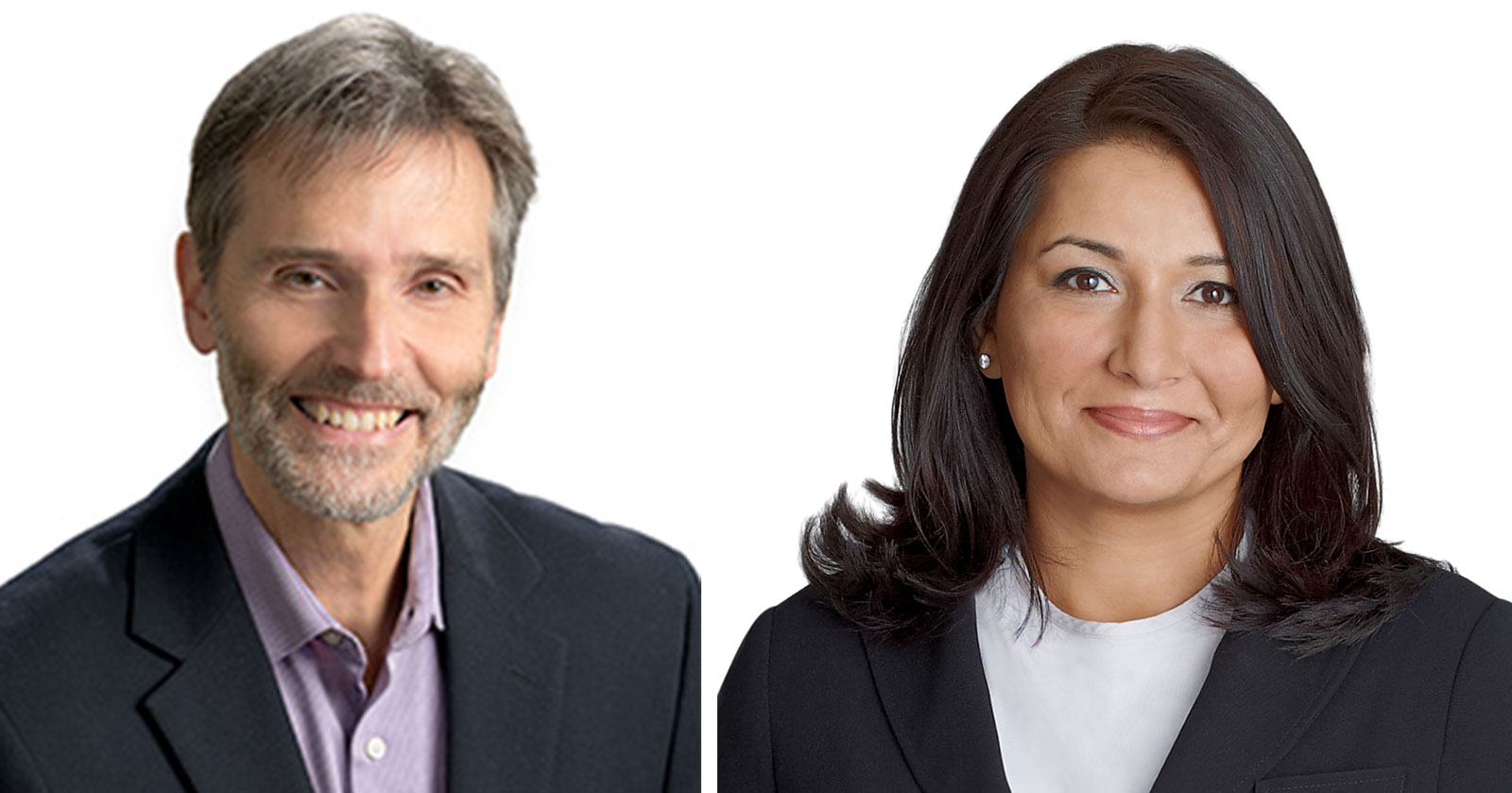Osgoode’s award-winning legal writers offer expert advice
Some legal scholars call it Ontario’s “Pulitzer Prize for legal writing.” And Osgoode Hall Law School professors have received the honour two years in a row.
In March 2022, the 2021 David Walter Mundell Medal for excellence in legal writing was awarded to Professor Philip Girard, one of Canada’s most distinguished legal academics and legal historians. The 2020 Mundell Medal was presented to Professor Poonam Puri, a leading expert in corporate governance, corporate law and securities law.
The province’s attorney general presents the Mundell Medal every year to a lawyer, academic or other legal writer who has made a distinguished contribution to law and letters and who demonstrates literary craftsmanship, clear expression and expertise in her or his legal writing. The award is named after the late David Walter Mundell, a respected constitutional lawyer and the first director of the Ministry of the Attorney General’s Constitutional Law Branch.
Philip Girard is the author or co-author of a number of acclaimed books on Canadian legal history, including A History of Law in Canada, vol. I, Beginnings to 1866 (University of Toronto Press) and Bora Laskin: Bringing Law to Life (U of T Press).
“In his important works of biography and his monumental History of Law in Canada, he brings legal history to life in a writing style that is as thoroughly engaging and accessible as it is rigorously researched,” said Ontario Chief Justice George Strathy, head of the selection committee, in announcing the 2021 award.
Puri has co-authored or co-edited close to 100 books, chapters, scholarly articles and commissioned research reports across her fields of expertise – corporate governance, corporate law, securities law and investor protection.
“Professor Puri’s writing has left an influential mark in the fields of financial market regulation, corporate governance and business law,” said Chief Justice Strathy when the 2020 award winner was revealed. “She deftly tackles these complex areas to make her legal writing widely accessible to a broad range of audiences, including legal professionals, academics and policy makers.”
For Puri, a former associate dean at Osgoode and co-founder and director of the Osgoode Investor Protection Clinic, the law school’s back-to-back wins are no coincidence. And she and Girard are by no means the first Osgoode faculty members to receive the honour.
“Osgoode is a world-class institution of legal education and scholarship fostering critical and insightful writing in a range of disciplines,” she said. “We challenge the status quo and we do so with methodological rigour.”
Legal academics are called on to write for a variety of audiences in a variety of styles, noted Girard. An expert report for use in litigation or a treatise meant to be used by students, lawyers and judges requires, above all, clarity, precision and concision. But academic articles, books or chapters that are more analytical in nature may allow more leeway for the author’s own style or creativity.
“I sometimes push back against editors of my academic writing who want me to stay with ‘safe,’ bland modes of expression that are in conformity with traditional legal writing,” he said.
“Academic writing should not be boring,” he added. “My advice to law students would be: Be aware of the audience for whom you are writing and think about what will serve them best. But within the constraints of whatever type of writing you are doing, try to find your own voice.”
Puri said three guideposts remain uppermost in her mind when she launches a legal writing project: “First, know why you’re writing,” she advised. “Second, be clear. And three, ask more questions.”
Regardless of the length involved, she said, she always urges students to remember “the why.” As the writer, “don’t lose track of the message you want to send with your work.”
To improve clarity, she added, “Take the extra time to go line-by-line and delete unnecessary words, tweak language and ensure a good flow.
And last, but by no means least, ask more questions, she suggested. “As lawyers and lawyers-to-be, we are asked to deal with some of the toughest problems faced in society,” remarked Puri. “When we are writing, we must be critical—there is no other way to write a good legal piece. And that means asking more questions, even when you feel that you already have the answer.”
